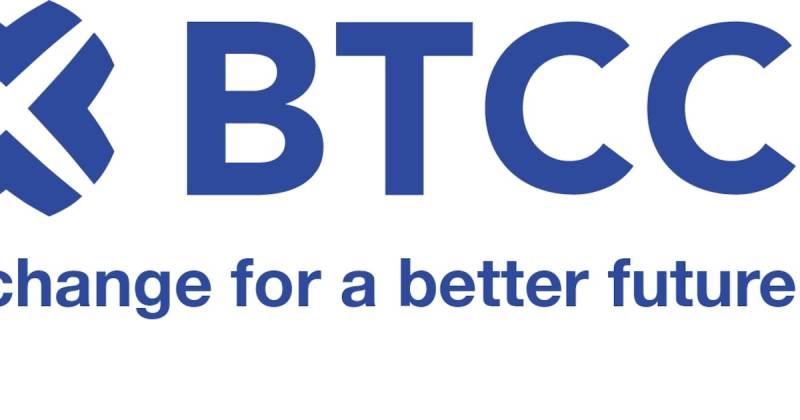 |
|
 |
|
 |
|
 |
|
 |
|
 |
|
 |
|
 |
|
 |
|
 |
|
 |
|
 |
|
 |
|
 |
|
 |
|
Cryptocurrency News Articles
Bitcoin Faces Significant Uncertainty as the Trade War Between the US and Canada Could Disrupt Mining Operations
Mar 05, 2025 at 05:30 pm
Bitcoin faces significant uncertainty as the trade war between the US and Canada could disrupt mining operations. Ontario Premier Doug Ford has warned that Canada may impose retaliatory tariffs on electricity exports to northern US states—or even cut the flow of power entirely—in response to tariffs introduced by US President Donald Trump.

The trade war between the US and Canada could have far-reaching consequences, including disrupting Bitcoin mining operations, according to industry observers.
Ontario Premier Doug Ford has threatened to strike back at President Donald Trump’s tariffs with retaliatory tariffs on electricity exports to northern US states or by cutting the flow of power.
"If he wants to destroy our families, I’m going after absolutely everything,” Ford stated in a video statement.
Up to 1.5 million customers in New York, Michigan, and Minnesota could be affected by the move.
If Ontario were to curtail or halt electricity exports, it would have a direct impact on Bitcoin miners who have set up shop in the US Northeast to take advantage of low-cost energy.
According to Michael Maloney, Founder & CEO of Incyt, more than 300 megawatts (and possibly up to 500 MW) of Bitcoin mining capacity is located along the New York–Canada border. This represents between 2.5% and 5% of global hashrate.
“This news could be a huge impact to $BTC and #Bitcoin as a whole,” Maloney wrote in a post on X, formerly Twitter.
Miners in the U.S. Northeast are currently enjoying energy prices as low as $0.037 per kWh in some areas, which has enabled large-scale Bitcoin mining operations to thrive. However, these prices are already set to rise by about 30% in "day-ahead" projections, putting strain on miners who rely on cheap electricity.
If up to 1.5 million electricity users in New York, Michigan, and Minnesota lose Canadian power, they will turn to local grids. Considering winter and the cold, let’s estimate 1,000 kW/Hr a month per household. This translates to a shortfall of demand of 2,000 MW/Hr.
New York State's power generation stands at about 17 GW currently, meaning it would need to add approximately 2 GW (a 12% increase) to meet demand. This would push prices higher.
"This will spike pricing of power load by 40%-70%, raising the price to $0.075 kW/Hr. Demand pricing would surge significantly, likely pushing all-in costs north of $0.12 kW/Hr. The 1.5M impacted people will see power costs 4-5x greater than usual. This will devastate them," explained Maloney.
The key concern is whether the current fleet of Bitcoin mining machines could remain profitable at higher energy prices.
According to AsicMinerValue.com, only devices with efficiencies of better than 16.5 j/TH might remain profitable at an energy price of $0.125 kW/Hr.
However, at press time, the new generation of Asic miners from Bitmain, MicroBT, and WhatsMiner are not yet efficient enough to maintain profitability at such a high price.
Maloney further noted that while miners might find short-term relief through demand-response programs, the costs and tariffs would likely make such programs unsustainable in the long run.
If facilities shut down or scale back, the immediate outcome could be a measurable drop in Bitcoin’s hashrate as major mining operations in Texas and other states might also face higher tariffs.
The stranded hashrate would likely flow to other jurisdictions, including Canada and China, where operators could take advantage of newly available mining hardware and cheaper electricity.
"Trade wars (including tariffs, retaliatory tariffs, and manipulation of utilities services) are bad for business. And make no doubt, Bitcoin mining is BIG BUSINESS," concluded Maloney.
Disclaimer:info@kdj.com
The information provided is not trading advice. kdj.com does not assume any responsibility for any investments made based on the information provided in this article. Cryptocurrencies are highly volatile and it is highly recommended that you invest with caution after thorough research!
If you believe that the content used on this website infringes your copyright, please contact us immediately (info@kdj.com) and we will delete it promptly.
-

- "Cardano (ADA) Price Could Dip Below $0.60, Following Previous Market Cycle"
- Apr 09, 2025 at 05:10 am
- "Cowen goes on to say that ADA's technical indicators, such as its 20-week simple moving average (SMA) and 21-week exponential moving average (EMA), are lining up with the theory that the crypto asset could see another sizeable dip."
-

- BONK, the well-known meme coin, has risen over 35% in the last week, attracting meme coin investors in the market. So, what caused this rally?
- Apr 09, 2025 at 05:10 am
- The well-known meme coin, BONK, has risen over 35% in the last week, attracting meme coin investors in the market. So, what caused this rally?
-

-

-

-

-

-

-


























































